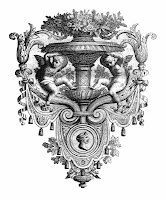APOLO Y MARSIAS
Metamorfosis, Libro VI, 382-411
Un no sé quién de Lycia que acababa
De relatar lo dicho del tormento
Del Sátiro otro de ellos se acordaba.
Al cual vencido, con el raro acento
De la palustre caña, dio un castigo
Apolo, cual su loco atrevimiento.
Y al vencedor decía: «¿Por qué conmigo
Lo haces tan mal, estando arrepentido?
A mí me pesa competir contigo»,
Gritaba; mas al fin no le ha valido,
Porque de su pellejo fue privado
En pena del pecado cometido.
Todo él era una llaga, y ha manado
Por todas partes sangre, de manera
Que estaba el miserable aparejado
Para que cada cual testigo fuera
De los desnudos nervios, y advirtiendo
Los pulsos y las venas conociera.
Podíase ver el pecho, do moviendo
Se estaba el corazón y las entrañas,
Porque era transparente y estupendo.
Doliéronse de penas tan extrañas
Los Faunos, con los Sátiros hermanos,
Que son la Deidad de las montañas.
Lloraron sus sucesos inhumanos
Las Ninfas, con Olimpo entonces claro,
Pastores y vaqueros comarcanos.
La fértil tierra concibió del raro
Y tierno sentimiento la corriente
De lágrimas, en seno nada avaro.
De do formadas aguas prestamente,
Un río dicho Marsias ha engendrado
En Frigia, liquidísimo, excelente.
Ejemplos semejantes refiriendo,
Al caso torna el vulgo variable
De Amfión y su casa, conociendo
Que la soberbia extraña, detestable,
De Niobe, ocasión de todo era,
A quien con sentimiento lamentable
Lloraba Pelops solo, de manera
Que rasga de los pechos el vestido,
Con ansia congojosa y lastimera.
Y el hombro de marfil se ha parecido
Que era el izquierdo, el cual como el derecho
Al tiempo del nacer de carne ha sido.
Mas después que su padre le ha deshecho,
Y sus miembros los dioses ayuntaron,
Faltándole el siniestro a su despecho,
Al punto de marfil se le formaron,
Con el cual quedó Pelops[1] como de antes
Que el hombro con el alma le tornaron.
Nota de la edición de 1887:
[1] Pelops, rey de la Elida, hijo de Tántalo, es uno de los personajes más célebres de la antigüedad. Instituyó o restableció los juegos olímpicos, y se le tributaron después de su muerte honras divinas. Tenía un templo en Olimpia, inmediato al de Júpiter. Refiere Clemente de Alejandría que el Palladium de Trova estaba hecho con huesos de Pelops.
[1] Pelops, rey de la Elida, hijo de Tántalo, es uno de los personajes más célebres de la antigüedad. Instituyó o restableció los juegos olímpicos, y se le tributaron después de su muerte honras divinas. Tenía un templo en Olimpia, inmediato al de Júpiter. Refiere Clemente de Alejandría que el Palladium de Trova estaba hecho con huesos de Pelops.
So that story
Was ended; somebody began another,
About that satyr whom Latona's son
Surpassed at playing the flute, and punished, sorely,
Flaying him, so the skin all left his body.
So he was one great wound, with the blood flowing,
The nerves exposed, veins with no cover of skin
Over their beating surface, lungs and entrails
Visible as they functioned. The country people,
The woodland gods, the fauns, his brother satyrs,
The nymphs, and even Olympus, whom he loved
Through all his agony, all wept for him
With every shepherd looking after his flocks
Along those mountainsides. The fruitful earth
Drank in those tears, and turned them into water,
And sent them forth to air again, a rill,
A stream, the clearest of all the running Phrygian rivers,
Named Marsyas, for the victim.
And the people
Came back from those old stories to the present
Mourning the death of Amphion and his children.
Putting the blame on Niobe, but one man,
They say, wept for her even then.
That was her brother Pelops, who, in tearing
The garments from his breast, exposed his shoulder
Showing the patch of ivory on the left.
When he was born, his shoulders both were normal,
The left the same as the right, and both of flesh,
But later, when his father cut him to pieces.
And the gods put him together again, they could not
Find that one portion anywhere, and made
An ivory substitute, which served, and Pelops
Was a whole man again.
Translated by ROLFE HUMPHRIES.
Sic ubi nescio
quis Lycia de gente virorum
rettulit
exitium, satyri reminiscitur alter,
quem
Tritoniaca Latous harundine victum
adfecit poena.
'quid me mihi detrahis?' inquit;
'a! piget, a! non est' clamabat 'tibia tanti.'
clamanti cutis est summos direpta per artus,
nec quicquam nisi vulnus erat; cruor undique manat,
detectique patent nervi, trepidaeque sine ulla
pelle micant venae; salientia viscera possis
et perlucentes numerare in pectore fibras.
illum ruricolae, silvarum numina, fauni
et satyri
fratres et tunc quoque carus Olympus
et nymphae flerunt, et quisquis montibus illis
lanigerosque greges armentaque bucera pavit.
fertilis inmaduit madefactaque terra caducas
concepit lacrimas ac venis perbibit imis;
quas ubi fecit aquam, vacuas emisit in auras.
inde petens rapidus ripis declivibus aequor
Marsya nomen habet, Phrygiae liquidissimus amnis.
Talibus extemplo redit ad praesentia dictis
vulgus et exstinctum cum stirpe Amphiona luget;
mater in invidia est: hanc tunc quoque dicitur unus
flesse Pelops
umeroque, suas a pectore postquam
deduxit vestes, ebur ostendisse sinistro.
concolor hic
umerus nascendi tempore dextro
corporeusque fuit; manibus mox caesa paternis
membra ferunt iunxisse deos, aliisque repertis,
qui locus est iuguli medius summique lacerti,
defuit: inpositum est non conparentis in usum
partis ebur, factoque Pelops fuit integer illo.



